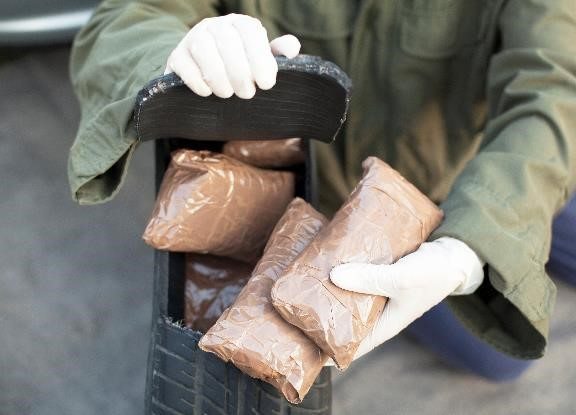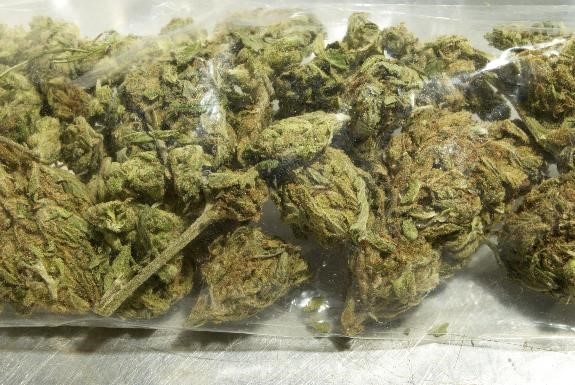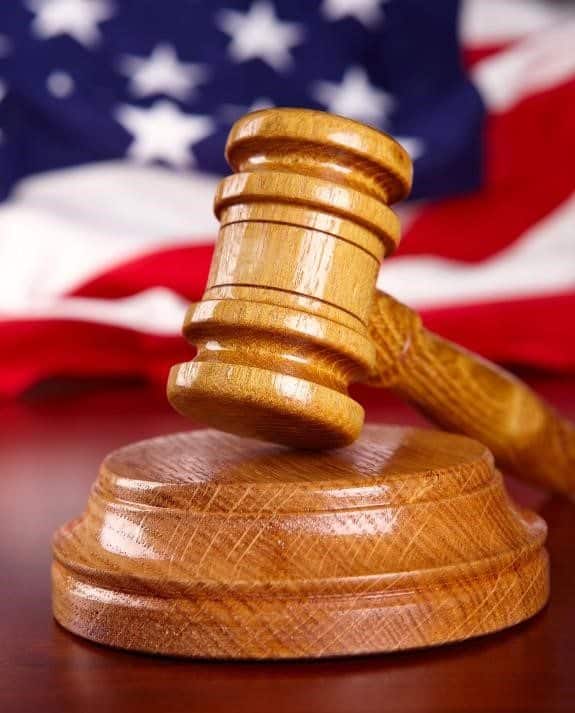
The U.S. Drug Enforcement Administration (DEA) said it was a $35 million international drug ring that produced 9.5 tons of synthetic marijuana. Fourteen individuals were arrested last month in Houston in connection with the narcotics trafficking conspiracy, including a finance professor at the University of Houston.
Synthetic marijuana, also known as Spice or K2, is made from dried plants (like oregano or basil) and chopped herbs in a mixture of different colors. This so-called “fake pot” is sold under more than 500 different brand names. It is coated with synthetic cannabinoids from a family of over 700 chemicals.
Poison control centers and hospital emergency rooms report the following, sometimes dangerous, side effects experienced by users of synthetic cannabinoids:
- Psychotic episodes
- Paranoia, increased anxiety, and hallucinations
- Tachycardia
- Agitation
- Drowsiness or lethargy
- Vomiting
- Confusion
- Seizures
- Sweating and loss of control
- Lack of emotional detachment
- Uncontrollable body movements
- Red eyes
- Dry mouth
The DEA has designated a growing number of chemicals found synthetic cannabinoids as Schedule I controlled substances, making it illegal to possess, sell, or buy them. This was accomplished through the Synthetic Drug Abuse Prevention Act, which is part of the FDA Safety and Innovation Act of 2012—an Act that placed 26 types of synthetic cannabinoids and cathinones into the Schedule I of the Controlled Substance Act.
Besides this federal criminalization, at least 43 states have taken steps to control one or more synthetic cannabinoids. The penalties at the state level for possession and sale of synthetic cannabinoids vary. Possession can be a misdemeanor with fines and possible jail time to a felony with fines and significant terms of imprisonment.
As of September 1, 2015, synthetic marijuana (Spice or K2) became illegal in the State of Texas. The state legislature made it part of the state’s Controlled Substances Analogues. The punishment for synthetic marijuana is now the same as possession of marijuana, falling under the Penalty Group 2-A of the Texas Controlled Substance Act. The following penalties apply:
- Less than two ounces – Class B misdemeanor (up to 6 months in jail/fine up to $2,000);
- Between two and four ounces – Class A misdemeanor (up to 1 year in jail/fine up to $4,000);
- Four ounces to five pounds – State Jail felony (six months to two years in jail/fine up $10,000);
- Five pounds to fifty pounds – third-degree felony (two years to ten years in prison/fine up to $10,000);
- Fifty pounds to two thousand pounds – second-degree felony (two years to 20 years in prison/fine up to $10,000); and
- Two thousand pounds and up – first-degree felony (five years to 99 years in prison).
The members of the Houston drug ring were indicted on 13 counts in federal court, including:
- Alleging a conspiracy to possess with the intent to distribute a controlled substance
- Aiding and abetting possession with intent to distribute a controlled substance
- Aiding and abetting the smuggling of goods into the U.S.
- Conspiracy to commit money laundering
- Conspiracy to commit mail fraud
The accused members of the drug ring were also hit with fraud charges due to their marketing and labeling of the product—claims that the product was legal, not for human consumption, or to be used as potpourri.
At the federal level, the penalties for each of these charges include up to 20 years in prison. Law enforcement seized nine tons of spice at the scene of the arrests.
The Story of Spice – and Why These Were Charged as Federal Crimes

Before July 2012, spice was legal. You could buy it in smoke shops if you were over the age of 18.
Today, however, under the recent changes in federal and state laws, Spice is as illegal as regular marijuana.
So why did the Houston drug charges all fall under federal jurisdiction?
The offenses charged involved bringing the drugs across state and international lines.
Simply put, if you are trafficking drugs through more than just one state, you will be sent to federal court. Conspiracy to commit mail fraud is considered a federal offense as well since the United States Postal Service is a national organization.
Differences between Drug Charges – in Texas and Beyond

The accused members of this spice drug ring were allegedly involved in every part of the process: manufacturing, possession, and trafficking. Each of these are considered separate crimes, but what is the difference?
Drug Manufacturing. If you are involved in any part of the process of making or growing illegal drugs, you can be charged with drug manufacturing. Even if you were merely supervising, assisting, or just possessed the tools to make illegal drugs, you can still be charged.
Penalties are given for drug manufacturing based on the type and amount of drug that you have been charged with. Manufacturing 1 gram of LSD, for example, can get you 5-40 years in prison. 10 grams of LSD can get you 10 years to life. If the drug you have been manufacturing is connected with a death or serious injury, you can receive 20 years to life, and a fine of up to $2-4 million.
Drug Possession. At the state level, manufacturing is considered a more serious offense than possession. Similar to the way drugs are labeled by Schedule groups at the federal level, drugs are classified into one of four penalty groups in Texas (marijuana is classified as its own group). Manufacturing drugs that fall into one of the four penalty groups is considered a felony, but possession tends to be penalized with misdemeanor charges.
Simple possession of drugs results in the smallest penalties and least harsh consequences of all drug charges. Again, the specific charges depend on the type of drug, the amount found, and any other aggravating circumstances.
In the case of the “spice” ring, nine tons of spice were found by law enforcement, so the consequences will be heavy for the 16 people involved.
Drug Trafficking. Drug trafficking is the sale or distribution of drugs, and serves as the most severe drug charge. Trafficking can also easily get your case taken from state to federal court. Like possession and manufacturing, trafficking penalties depend on the type and amount of drug(s) involved, and any aggravating factors (possessing a firearm while engaging in any of these charges can severely increase your sentence, for example).
Even the sale of marijuana at the federal level can have penalties including life in prison and millions of dollars of fines at higher amounts. In the state of Texas, the lowest felony crimes have penalties of 2 years in prison and fines of $10,000.
Drug crimes are serious. While you may anticipate your case staying in state court, any evidence that the actions you are charged for took place in multiple states can get your case moved to federal court. For this reason, it’s important to have a lawyer with state and federal criminal defense experience. Call us today for a confidential consultation.



